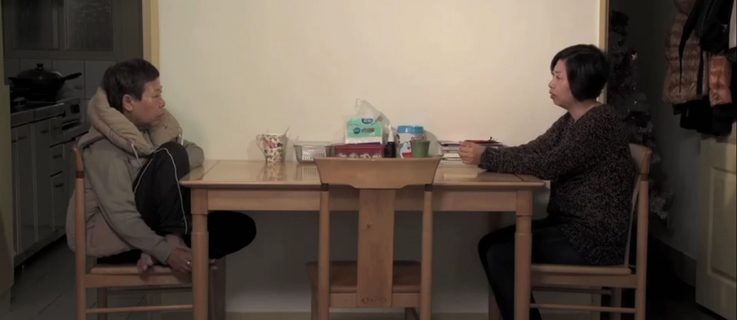Filmmaker Hui-chen Huang shows her personal journey towards reconciliation of her childhood. It is also an analysis of her encompassing society’s connection to gender equality and varying identities and sexual orientations.
The showing of this film could not be more timely given the recent parliamentary steps towards the legalisation of same-sex marriage in Taiwan. Small Talk is then a love letter from Huang to her mother, who silently suffered from an abusive relationship that arose from a forced marriage in a small Taiwanese village in the 1970s, as well as a rejection of her sexual orientation by society and gradual estrangement from her two daughters
Through filmed dialogues Huang and her mother finally break their silence and confront painful experiences that they shared, and in doing so unearth difficult questions regarding their love for each other. The film concludes with a conversation between the two at the dinner table, where their wounds are torn open in a brutal, candid, and intimate way. Three cameras are positioned to capture close-ups and profile shots, depicting them across the table at a distance that does not allow physical contact; although Huang’s mother remains silent for the most part during the encounter - her gaze dodging and fingers fiddling with her toes - she does not try to flee.
Here the camera creates the pretext of opportunity for the filmmaker to physically and emotionally connect with her mother. It is only from behind the lens that Huang is able to fixate on the subtle facial expressions of her subject; every wrinkle, and every inch of her textured skin. The tension is broken when the filmmaker’s aunt, after being asked whether she knew that her sister likes women, rushes inside to announce “I need to do the laundry”. This humorous though bitter moment, when combined with several repetitive sessions of back-and-forth questioning of “Did you know?” and “I didn’t know”, manifest the burning need of “small talk”, the importance of giving a voice to those who remain silent for too long, those who are despised and discriminated against, and those who should be liberated from feelings of shame.
Beautifully accompanied by music from the legendary composer Giong Lim (林强) Small Talk is also bolstered by production from one of Taiwan’s most important film auteurs, Hou Hsiao-hsien hsien (侯孝贤). Seemingly a localised and personal story, Small Talk’s message is universal and speaks to an audience regardless of nationality, race, gender, sexual orientation, and socioeconomic background. Upon watching Raoul Peck’s documentary I Am Not Your Negro, which is based on the manuscripts of the American novelist James Baldwin (also in Berlinale’s Panorama section this year), I was struck by a number of Baldwin’s quotes that also resonate here in a very beautiful way. A favourite of mine, and one that is especially pertinent to Small Talk, is: “Not everything that is faced can be changed, but nothing can be changed until it is faced.”
